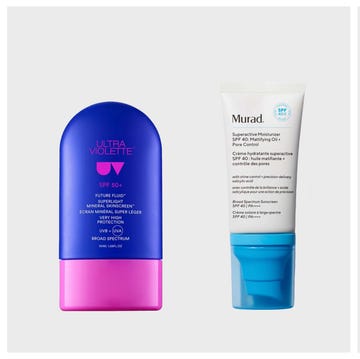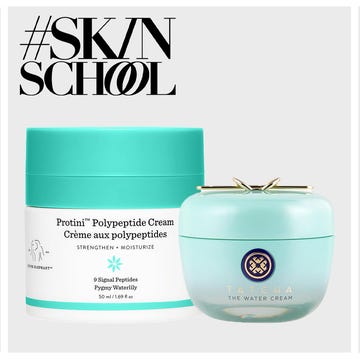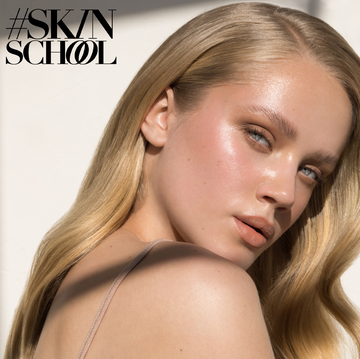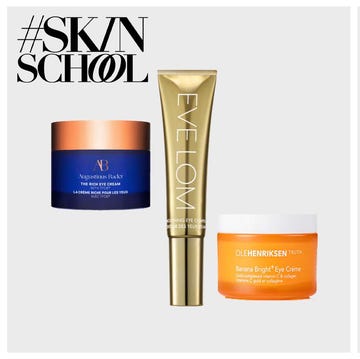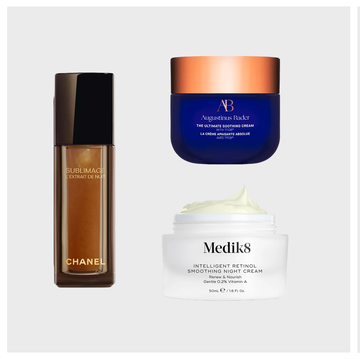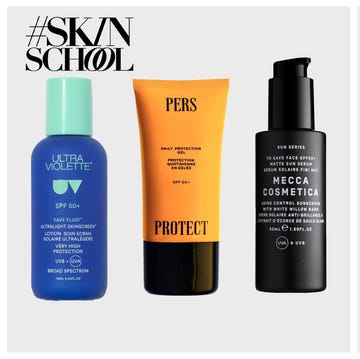We earn a commission for products purchased through some links in this article.
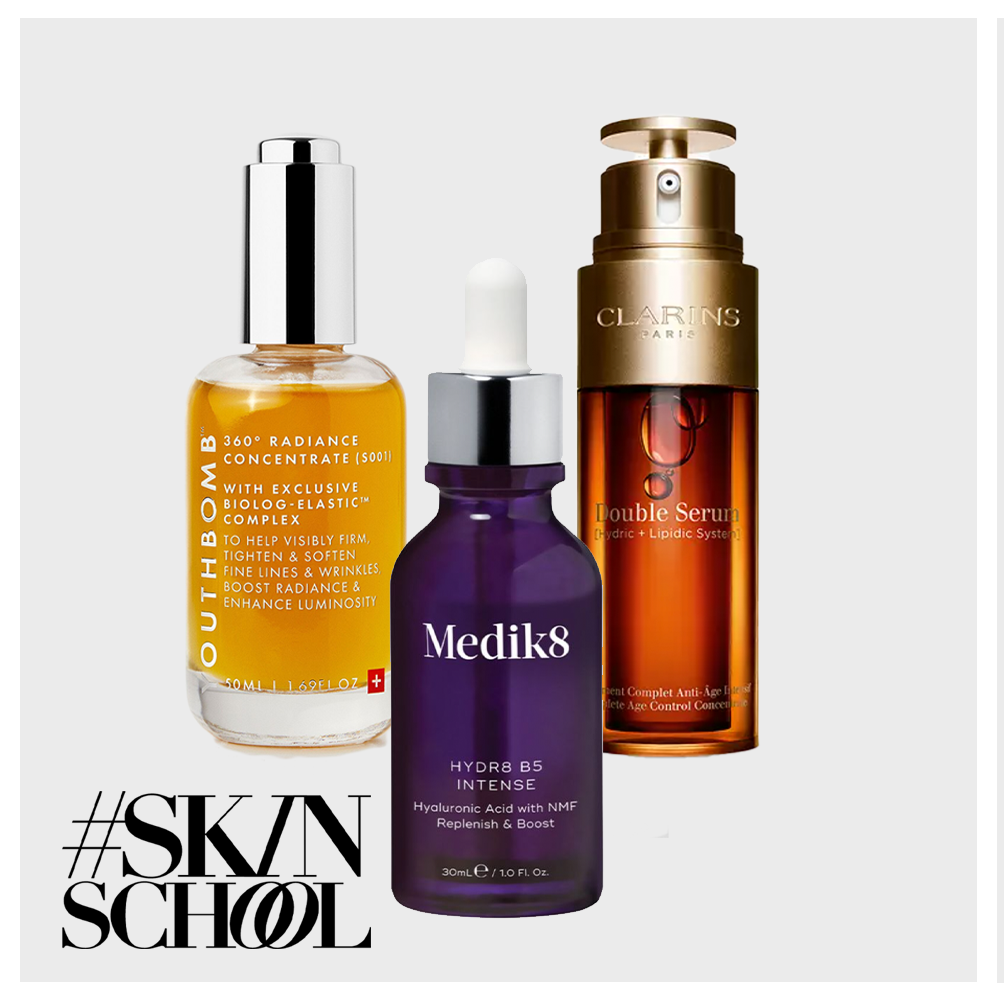
#SkinSchool: How to find the best hydrating serums for your skin type
A closer look into one of the most popular skincare categories
Beauty editors unanimously agree that a face serum is the one skincare category worth splurging on. A good one will contain actives proven to help maintain the health of your complexion while targeting specific issues from hyperpigmentation to fine lines and of course, hydration.
Considering the ever-changing seasons in our UK climate, moisture loss is a common concern – which is why many skincare formulas now contain some form of hydrating ingredient (hyaluronic acid being the most popular). But do we really need a separate hydrating serum?
The best hydrating serums for winter
What does a hydrating serum do?
"Hydrating serums can help restore balance and replenish moisture without adding extra oil, which can sometimes be required if the skin is too over-exfoliated and stripped of its natural sebum," says Dr Jinah Yoo, consultant dermatologist at Maylin x Jinah Yoo Dermatology. However, all skin types can benefit from a hydrating serum; it can help to plump mature complexions and replenish loss of moisture in dry skin types.
What ingredients to look for in hydrating serums
Hyaluronic acid is often the star in hydrating serums, but there are plenty of clinically proven ingredients that help to improve hydration levels, all while strengthening the skin barrier, encouraging collagen production and plumping up fine lines.
Dr Yoo is a fan of ceramides, squalane (on dry types) and aloe vera as these ingredients "can work in tandem to provide deep and lasting hydration, improve skin texture, and support the skin barrier by reducing trans-epidermal water loss". Peptides are also key for keeping skin bouncy and smooth.
Can oily skin types use a hydrating serum?
Oily or combination skin can reap its advantages too, as they can still be prone to dehydration – which is a lack of water, rather than oil.
"The key is to choose ingredients that hydrate well without being greasy or clogging pores," says Dr Yoo. "Ingredients such as hyaluronic acid (also known as HA) attracts and retains moisture, glycerin is non-comedogenic and draws in moisture, niacinamide (vitamin B3) assists in regulating sebum production and supports the skin barrier, while sodium PCA and panthenol (vitamin B5) work well for maintaining hydration levels without clogging the skin."
But do you really need a hydrating serum?
In recent years, the internet has debated the necessity of a hyaluronic acid serum, considering how widely used the ingredient is in other skincare products. While you may not need one if your skin feels comfortably hydrated after cleansing, they do help if your complexion has even the remotest tightness afterwards – especially if the serum features any of the ingredients mentioned above.
"Dedicated HA serums often have a higher concentration of hyaluronic acid, which provides more potent hydration when compared to other products that include it as one ingredient in a wider list," explains Dr. Yoo. "If your skin is extremely dry, flaky or dehydrated, an additional HA serum can provide the extra boost of hydration needed, and it can be layered with other skincare products to support the effectiveness of your routine."
The best hydrating serums for every skin type:















